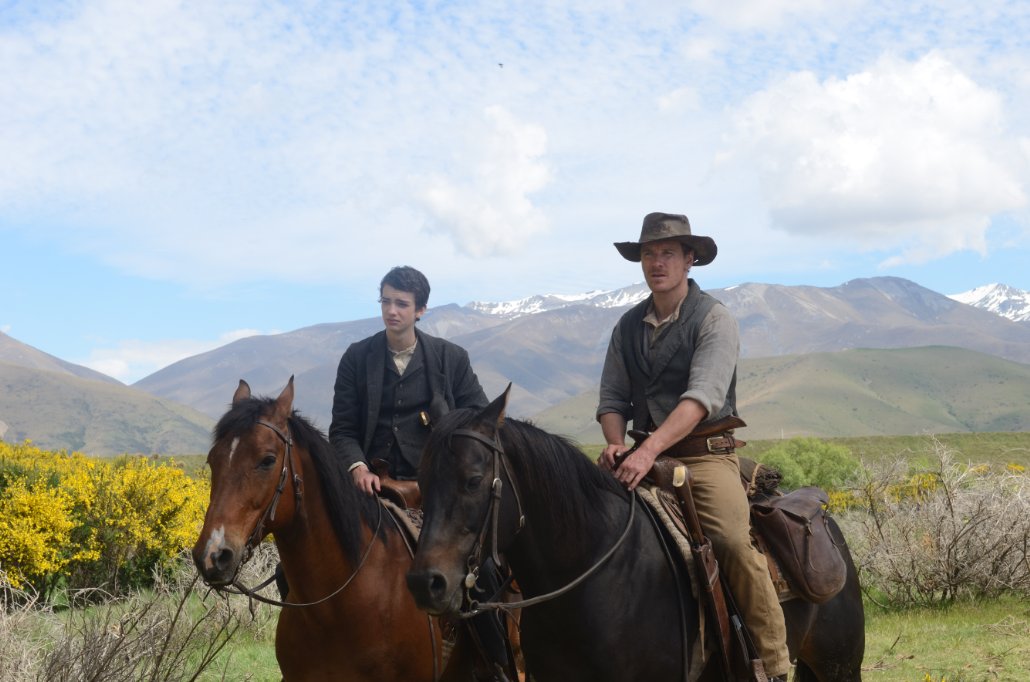20.) Goodnight Mommy
A stiff, calculating film rife with subtext about grief, filial responsibility, and Freud’s “uncanny”, this first feature from Veronika Franz and Severin Fiala is a steady descent into horror. When their mother returns with extensive facial surgery after an accident, wrapped in bandages, twins Elias and Lukas begin to wonder if she truly is their mother or an imposter. The film’s cold, European arthouse distance from its subject helps to poise it above the action, allowing its harrowing nature to disturb based on its ideas and form, rather than through emotive jump scares or intense atmosphere. It’s rare to get a horror film this interested in unsettling its audience, rather than scaring them, and it has the potential to be a truly great film, but quickly undoes much of its potential in the final twenty minutes. Goodnight Mommy devolves into a series of cheap torture gags, trading its carefully constructed formal approach for pointless titillation (the dynamics between the mother and children were both more interesting and scarier than the subsequent sadistic childplay).
19.) Slow West
A curious amalgamation of the grown-up whimsy of Wes Anderson and the brutal, self aware violence of a revisionist Western, John Maclean’s tonal eccentricities are grounded by several excellent performances from Michael Fassbender, Kodi Smit-McPhee, and Ben Mendelsohn. An immigrant’s tale, following the young Jay Cavendish (Smit-McPhee), on leave from the Scottish highlands in search of his unrequited lover, Rose, Slow West is a mild revisiting of the frontier as a stage for romance against a tragic backdrop of man’s cruelty and self inflicted savagery, while allowing the American Dream a small respite in the form of a tiny cabin in the midst of the chaos surrounding it. Rooted in an idiosyncratic magical realism that belies its all too real violence, Slow West is refreshing for its looser, more laid back approach as opposed to the self serious style of many modern Westerns. A final, poignant montage captures the zeitgeist of the film and grants a sense of closure and respect to its characters – even unnamed ones – that few films allow.
18.) Court
Chaitanya Tamhane’s carefully constructed look at India’s flawed judicial system is a quiet revelation. While not as powerful formally as the Israeli judicial film Gett:The Trial of Viviane Amsalem, Court is impressive in its own right.Tamhane has a rare patience with his images, holding them slightly longer than narratively necessary in order to grasp a small personal detail, or listen to a snippet of daily life outside of the characters’ small spheres. There’s a depth to his frames, whether in deep focus or shallow, they are almost always populated by more than the primary action in the scene. It’s a master shot style of ensemble realism, allowing and encouraging the film’s naturalistic elements. Court embodies the principle of “show, don’t tell” without abandoning a very vocal take on the onscreen injustices.
17.) Blind
A meld of cerebral subjectivity and overwrought personality, Eskil Vogt’s debut is an assured step out from under the shadow of Joachim Trier. Like Trier’s films, Blind features sequences of brilliant editing, an intuitive sense of rhythm. It also manages to compress itself into a single character’s experience even as it tells a plurality of stories and criss-crossing events. Centred on a woman, Ingrid (Ellen Dorrit Petersen) slowly losing her sight, Blind winds along through several stories she begins to imagine as she struggles to retain her ability to internally envision anything at all. It results in an unreliable narrator who blurs the lines between her real life and her fiction, and the audience is never given an external point to check her stories against. Vogt’s film is rooted in the psyche – Ingrid’s fears, repressed fantasies, her struggle to come to terms with her encroaching blindness. While frequently finding room for droll ironies and meta humour, Blind is weighed down in a melancholic sensitivity that can instantly reshape any scene into an affective looking glass for the audience.
16.) Ex Machina
A claustrophobic sci-fi thriller writ small in scope but plastered from floor to ceiling with and tropes and ideas of the genre, Alex Garland’s first foray into directing is a cool, labyrinthine take on Frankenstein, and the subsequent moral questions which arise. While it may not have anything new to say about Artificial Intelligence, Ex Machina makes up for it through its cast of rising stars in Alicia Vikander, Domnhall Gleeson, and Oscar Isaac. Isaac has a lot of fun as genius billionaire Nathan Bateman (his disco dance scene is one of the film’s perfect moments), but the real tension of the film likes in the wool being pulled over the eyes of Gleeson’s Caleb, both by Nathan and by Vikander’s Ava. Yet even with a few red herrings and an able pacing, it’s not too difficult to unravel the film’s twists before they are unveiled. But Garland’s sense of atmosphere and absorbing mood of mystery is beguiling enough on its own. There are too few science fiction films like Ex Machina which achieve the heft of a short story, grounded in style and ideas over action-packed CGI.






